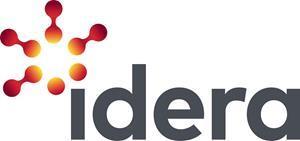
– Enrollment Stopped Early for Efficacy –
EXTON, Pa., May 17, 2022 — Idera Pharmaceuticals, Inc. (“Idera,” “we,” and “our”) (NASDAQ: IDRA) today shared positive interim results from Amsterdam UMC, Vrije Universiteit Amsterdam, the Netherlands, regarding its investigator-sponsored trial, INTRIM 1, involving tilsotolimod, Idera’s synthetic Toll-like receptor 9 agonist. Based on these results, the trial has been stopped early.
INTRIM 1 is a randomized, double-blind, placebo-controlled Phase 2 trial among patients with localized, excised melanoma (pathological tumor stage 3-4) with no regional metastases detected and no evidence of distant metastasis. The trial involved a single, intradermal injection of 8 mg tilsotolimod or saline placebo given at the primary tumor excision site, followed by re-excision and sentinel lymph node (SLN) biopsy 7-10 days later. Noting that there were more patients with ulcerated lesions in the placebo arm compared to the tilsotolimod arm, topline interim results of the respective SLN-positivity rates showed a 70% lower SLN+ rate among patients injected with tilsotolimod as compared to those injected with placebo; the placebo SLN+ rate was in the mid-40%s. Statistical significance exceeded the pre-specified p-value of 0.008. Adverse reactions included injection site reactions, malaise, fever and flu-like symptoms.
“This is an exciting result from tilsotolimod, and we are pleased for the patients and their families to whom it offers hope for the future,” said Vincent Milano, Idera’s Chief Executive Officer. “These results, together with data supporting tilsotolimod’s mechanism of action and encouraging safety profile from across the array of earlier pre-clinical and clinical work, reinforce the potential of tilsotolimod to offer benefit to patients with certain cancers. As a result, we plan to actively pursue a strategic partnership for tilsotolimod so that its full potential for patients may continue to be explored.”
This interim result validates previously reported results from INTRIM 1 that showed immune activation, including elevated frequencies of key dendritic cells, in early analysis by flow cytometry of the SLN biopsies. The trial will continue to relapse-free survival (RFS) and overall survival (OS) at 5 and 10 years after SLN biopsy.
“Currently, there are limited adjuvant treatments available to improve survival after surgical excision of a primary melanoma,” said Prof. Tanja de Gruijl of Amsterdam UMC. “We are delighted with the results we have seen in this study, which suggest that tilsotolimod administered at the excision site lowers the extent of tumor-positive lymph nodes and, if it improves overall survival, offers early melanoma patients a potential new treatment option.” Amsterdam UMC investigators plan to present the full data set at an upcoming medical meeting.
About Melanoma
Melanoma is a cancer that begins in a type of skin cell called melanocytes. While melanoma is the least common type of skin cancer, it has a poor prognosis when not detected and treated early. Early stages of melanoma are treated by removing, or excising, the tumor surgically. However, even after surgery, nearly one-third of all melanoma patients will experience disease recurrence and most relapses eventually will progress to metastatic disease. When regional lymphatic metastases are present, the 10-year survival rate is 68% – 24%. SLN biopsy is a useful prognostic tool for the assessment of melanoma relapse and mortality risk. Ulceration is associated with more SLN positivity.
In many cases, additional cancer treatment, referred to as adjuvant therapy, is given after the primary excision of the melanoma. The goal of adjuvant therapy is to reduce the risk of melanoma returning and potentially metastasizing. The adjuvant market size for melanoma excision cases is over 1 million cases globally and about 300,000 in the US annually. As is the case in many forms of cancer, melanoma becomes more difficult to treat once the disease has spread, or metastasized, beyond the skin to other parts of the body.
About INTRIM 1
INTRIM 1 is a multi-center investigator-sponsored trial conducted by UMC Amsterdam among patients with pT3-4 cN0M0 melanoma. The study is a randomized, double-blind, placebo-controlled Phase 2 trial of a single, intradermal injection of 8 mg tilsotolimod or of saline placebo given at the primary tumor excision site 7-10 days prior to SLN biopsy.
INTRIM 1 is intended to examine the ability of tilsotolimod to induce loco-regional and systemic immune stimulation, and therefore, improve survival among the targeted patient population. Outcome measures of the trial include the following:
- Primary endpoint: rate of tumor positive SLN at the time of biopsy.
- Secondary endpoints:
- Immune response in the SLN and peripheral blood 7-10 days post-biopsy, as measured by frequency and activation state of lymph node resident (LNR) conventional dendritic cells (DC) and melanoma antigen-specific T cell responses in the SLN and peripheral blood.
- RFS, determined by the length of time from intradermal injection of tilsotolimod to first documentation of recurrence (RFS), measured at 5 and 10 years after SLN biopsy.
- OS at 5 and 10 years after SLN biopsy, determined by the length of time from intradermal injection of tilsotolimod to death from any cause.
While enrollment for the primary endpoint has been halted early as a result of the primary endpoint being met, the study will continue to its secondary endpoints. For more information on the INTRIM 1 trial, please visit www.ClinicalTrials.gov (NCT04126876).
About Tilsotolimod (IMO-2125)
Tilsotolimod is an investigational, synthetic Toll-like receptor 9 agonist. Tilsotolimod has been shown to promote both innate (Type-I IFN, antigen presentation) and adaptive (T cells) immune activation and may, in turn, contribute to tumor suppression and regression. For more information on tilsotolimod trials, please visit www.ClinicalTrials.gov.
About Idera Pharmaceuticals
Idera is focused on the acquisition, development, and ultimate commercialization of drug candidates for rare disease indications characterized by small, well-defined patient populations with serious unmet needs. To learn more about Idera, visit IderaPharma.com.
